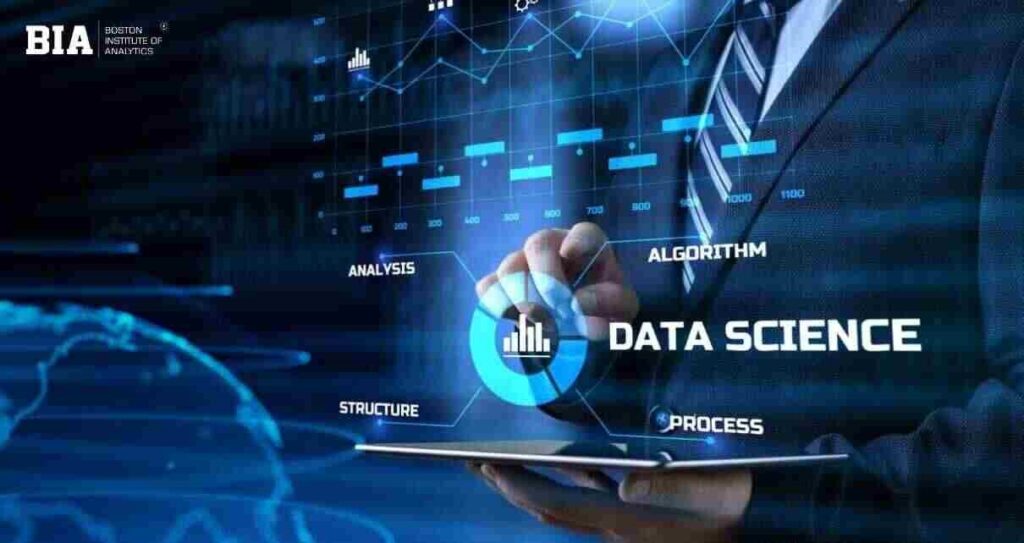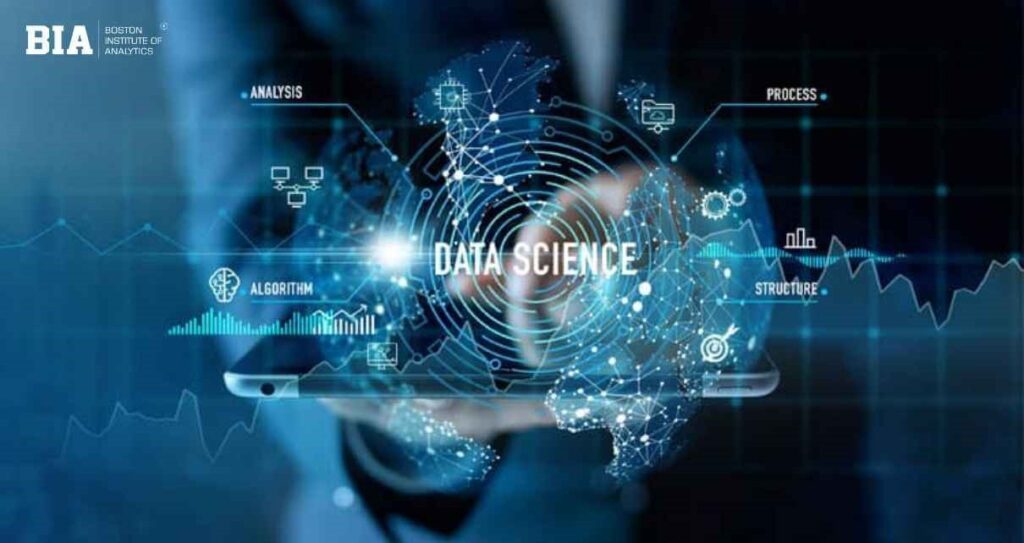You most certainly can have a successful career in data science even if you are not coming from a technical or STEM background. Many professionals have transitioned into data science and you can also! In this post, we will discuss how to build some of the right skillsets, how to select a Data Science Course, how to obtain the relevant experience, and how to position yourself to feel confident about the types of data roles you can pursue.
In fact, some of the best data scientists started out in finance, business, healthcare, journalism, education, and even the arts. The thing they all had in common was a passion for data, a willingness to learn tools, and a structured plan to upskill.
Why Data Science Is Open to Non-Tech Professionals?
While a common perception is that data science is the realm of coders and engineers, this could not be further from the truth. Data science is one of the most inclusive fields I can think of. Professionals from various fields of practice, ranging from business to finance, healthcare, education, and the arts are transitioning into data science and excelling.
1. Data Science Is About Problem Solving, Not Just Coding
At its heart, data science is about being to ask critical questions and make meaning from the data to solve problems. Anyone is able to think critically and interpret trends whether or not they have a degree in computer science. If you are someone who has experienced decision-making, strategic thinking, and reporting in your previous occupations, you have likely been trained in the data science mind-set.
2. Transferable Skills Matter
Professionals developing careers outside of tech bring strong communication, domain knowledge, and analytical thinking crucial skills for successful data science. Whether it is seeking to understanding customer behaviour in marketing or patient trends during a health service delivery, your discipline provides context for data that tech only professionals do not.
3. Tools Are Becoming More Accessible
With accessible platforms like Power BI, Tableau, and Excel’s advanced features, a lot of robust data analysis can take place without any coding experience. You can add tools like Python or SQL later, but they aren’t necessary to get going.
4. Growing Demand for Diverse Perspectives
The principle of cross-functionality is now valued by organizations. A non-technical person who understands both the business and data side is uniquely able to bridge the gap between departments.

What Skills Do You Actually Need?
Starting in data science does not mean you need to be a full-stack coder or a mathematician. The important part is knowing what skills matter (and how to develop them over time).
1. Analytical Thinking
Data Science is about data-driven decision making to solve real-world problems. You need to be able to identify patterns within the data, be able to understand trends, and, ultimately, to make decisions based on evidence! If you’ve previously worked in an area like strategy, operations, or reporting, then you are already using some of these skills!
2. Basic Statistics & Math
You should understand concepts like:
- Mean, median, mode
- Probability and distributions
- Correlation vs. causation
- Hypothesis testing
These are the foundations behind data models and analytics—no advanced math degree required.
3. Data Handling Tools
Start with tools that help you explore and visualize data:
- Excel or Google Sheets: For data cleaning and pivot tables
- Power BI or Tableau: For creating dashboards and reports
- SQL: To query databases and extract data efficiently
4. Beginner Programming (Optional, But Valuable)
Learning Python (with libraries like Pandas and scikit-learn) or R- which can help unlock automation and machine learning opens up possibilities for you as a data scientist, though many data analyst jobs do not require you to learn it right away.
5. Communication & Storytelling
It’s no good to have data if others cannot understand it. You may need to translate complex findings to technical measure stakeholders who may influence decisions based with it in mind, utilizing visualizations/insights along the way to help sell the point.

Step-by-Step Guide to Entering Data Science Without a Tech Background
If you’re in a position where you want to switch careers to data science but don’t have a traditional technology / engineering or programming background, the prospect may seem intimidating. But with data science more accessible than ever, data science is possible for anyone. With the right mind-set, resources, and plan anyone from marketers and accountants to teachers and healthcare workers can transition into the world of data. So how can you get started? Here are a few step by step ideas for ideas on how to transition into a data career.
Understand What Data Science Really Is
Start with a high-level understanding of what data science actually is. Data science includes machine learning or artificial intelligence: but is so much more than that too. Data science covers collecting data, cleaning that data, analyzing that data, and helping an organization use that data to make data-driven decisions. Understand the four basic aspects of data (data analysis, statistics, programming, and data visualization) and understand how those four aspects make up part of the wider discipline of data science. Each element has a connection to help inform insights.
Identify Your Transferable Strengths
Next, think about what skills you already have experience with and build off that. If you’ve ever written a report (perhaps you’ve used a spreadsheet to analyze something), conducted a research study, or assumed some kind of project manager role (to coordinate workers towards an outcome), then you have analytical and problem-solving skills. Also don’t discount domain knowledge – having knowledge of your field can help you in industry specific sectors of data careers.
Build a Foundation in Statistics and Analytics
Before you begin programming and learning to code, it is best to understand a few general ideas about statistics and how data is structured in the world. Learn what we mean by average, standard deviation, regression, correlation, and probability. There are many beginner resources that teach you these concepts in ordinary and approachable English without the need for complicated formulas.
Learn the Tools of the Trade
Fifth, familiarize yourself with the tools we use in real data work. Start with Excel or Google Sheets to begin learning how to manipulate data before moving on to something like dashboards and visualization tools like Tableau or Power BI, and then on to databases where you will learn to manipulate data through SQL and other tools to extract and gather your data most efficiently.
Take a Beginner-Friendly Data Science Course
Finally, you might consider enrolling in a program to fast-track where you are going. Some structured or boot-camp style programs in data science are for non-computer science majors like yourself. Look for a program that begins with the foundations of handling data, the foundations of statistics, the foundations of visualization, and then when you are ready, proceed to learning how to program in Python, machine learning and more. You can find many online programs with included projects that will help you to affordably step your way from project based learning to filling your personal portfolio.
Practice Through Real-World Projects
Utilize your learning by applying it to small, practical projects, utilizing real data sets. It could be anything in between analyzing sales data to creating dashboards of social media metrics. Projects are valuable, because they demonstrate an ability to apply what you’ve learned, to solve problems, and to return results to a potential employer. Document everything in detail, and share online through GitHub or LinkedIn.
Learn Basic Programming (When You’re Ready)
Programming is definitely a useful skill to have in data science, but it doesn’t always have to be your first skill. Once you feel comfortable with the basics, start learning how to program with Python. For your purposes, you’ll want to focus on the data-focused libraries such as Pandas, NumPy, and Matplotlib. These will help you work with larger data sets, run data analysis, visualize results, and are necessary tools for a data scientist to have.
Build Your Portfolio and Online Presence
Create a digital portfolio of your projects, analysis, or visualizations. This could be a personal website, a GitHub repository, or a blog. Share about your learning, your insights, and provide case studies. A portfolio demonstrates your skills, and shows your passion for data. Employers often look to see if candidates have initiative and curiosity! Woefully, best-expression these traits in an online setting.
Network with the Data Community
Join a few online groups, webinars, data competitions, and network with professionals on LinkedIn as well. Being engaged in the data science community helps with staying motivated, being exposed to job opportunities, and learning from someone who was in your shoes. Don’t be afraid to ask questions or for mentors.
Apply for Entry-Level or Adjacent Roles
Once you have most of the fundamentals under your belt, and a portfolio to reference, you can apply for some roles that interest you and support your skillset; data analyst, business intelligence analyst, reporting analyst, or an operations analyst are often more substantial roles for non-technology professionals and a solid entry into the data world.

What Jobs Can You Get?
A major misconception associated with data science is that you have to become a “Data Scientist” right away. In fact, there are a wide variety of roles to fit different levels of skills and interests – many of which fit very well for non-technical professionals entering analytics.
Data Analyst
This is one of the most common entry-level points. Data analyst roles are responsible for interpreting data, building visualizations, creating dashboards, and supporting business decisions. As long as you have Excel, SQL, or known analytical tools (such as Power BI or Tableau), you would be ready to take on this role.
Business Intelligence (BI) Analyst
BI Analysts are data analysts that support the business by developing actionable insights from business data. BI Analysts often work closely with management and the organization to find trends, track KPI’s, and improve business performance or success rates across departments. If you are transitioning from a business background, this could be a huge advantage based on your newly acquired data skills.
Marketing or Product Analyst
If your background is in marketing, sales, or customer experience, it would be easy to enter a data role within either of those departments. These types of data roles often focus on campaign performance, user behaviour, and or market trends while exploring analytics tools and customer data platforms.
Operations or Supply Chain Analyst
People with experience in logistics, operations, and manufacturing have already been data practitioners in their careers by improving processes, predicting requirements, and finding efficiencies. Think of all the Excel workflows, process maps, and simple data modeling. This is often enough to get your foot in the door.
Data Science Intern or Junior Analyst
Many organizations hire interns and junior data analysts with no technical degree relying on the basics. They look for problem-solving abilities and an overall willingness to learn. If you’ve completed a data science bootcamp and created a portfolio of work, you will probably be in a good position.
Research or Insights Analyst
In particular, many organizations in the health, education, public policy, and non-profit sectors are hiring researchers who can read and interpret data and disseminate research results. Those opportunities usually bring the researcher’s subject matter expertise, writing skills, and ability to tell a story as much as their technical skills.
Why Boston Institute of Analytics?
Here’s what makes BIA ideal for non-tech learners:
- Beginner-friendly curriculum: No prior coding experience required
- Industry-relevant tools: Python, SQL, Tableau, Excel, and more
- Hands-on training: Real datasets, case studies, and capstone projects
- Career support: Resume building, mock interviews, and job referrals
- Global reputation: Trusted by students and recruiters worldwide
Whether you are in India or overseas, you can learn with them in person or online, with a schedule that works for working professionals.
If you’re committed to leap, BIA’s Data Science Course will help you to do it with support, community and evidence that it’s working.
Final Thoughts: Yes, You Can Do This
Transitioning to data science without a technology background is not an easy way out. It can be a smart, strategic direction if you’re willing to spend the time to learn.
It’s a new field. Companies are figuring out how to best leverage data. Thus, they need diverse thinkers people who understand the business, can ask good questions and know how to use just enough technology to find the answers.
That can be you.
And if you would like a ready-made guided path to get there, the Boston Institute of Analytics would provide that.
